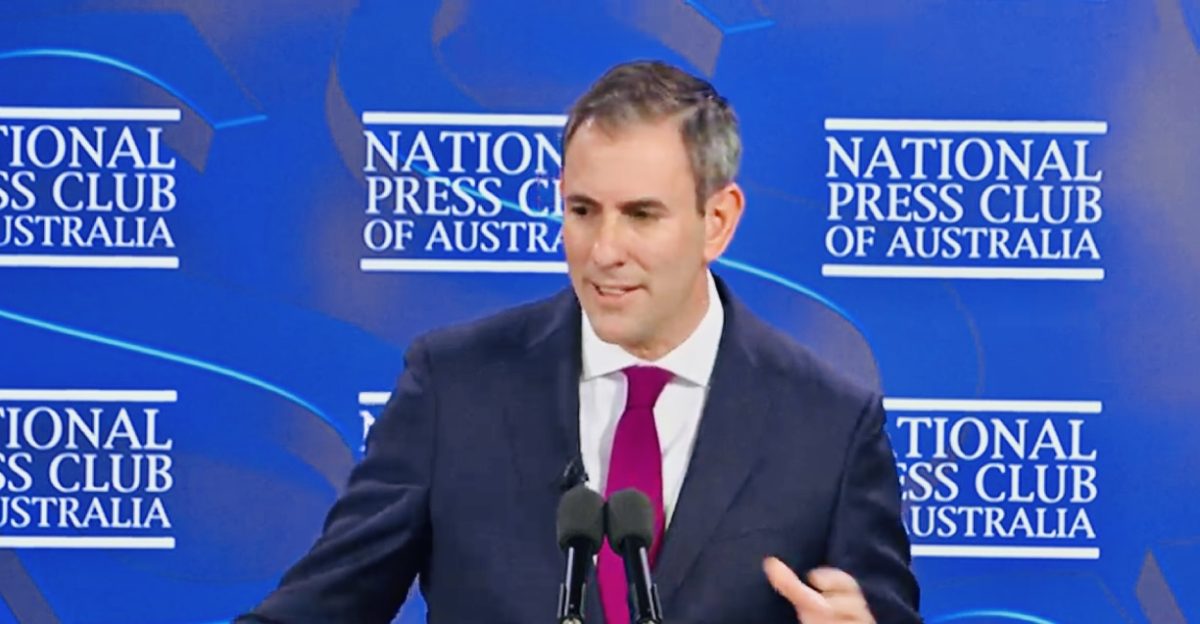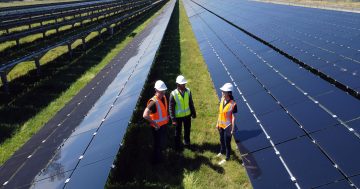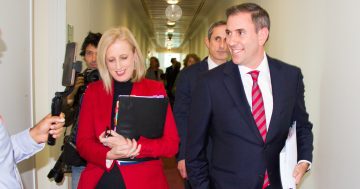
Treasurer Jim Chalmers answering questions at the National Press Club about the Intergenerational Report. Photo: Region.
Australia’s budget will be in deficit for the next 40 if the nation stays on its current course, according to predictions in the Albanese government’s first Intergenerational Report (IGR), released on Thursday (24 August).
But Treasurer Jim Chalmers says the challenges facing the country offer a mix of obstacles and opportunities that must be met head-on.
That doesn’t mean a wholesale reworking of the tax system, he insists, but rather more modest tax reform and a strong focus on increasing productivity.
Addressing the National Press Club on Thursday, Dr Chalmers said the IGR forecasts an older Australia with people living longer and being paid more, but alongside potential serious workforce challenges.
The results of climate change would also have a major impact on the nation.
“This IGR sets out the choices that will determine whether we succeed or fail in the years ahead,” the Treasurer said.
“It sends a pretty clear and compelling message. We can own the future, but only if we take the big shifts seriously.
“Because if the 1980s meant the end of certainty, the 2020s must mark the end of complacency.”
He said while the government’s immediate obligation was to do what it can to ease cost of living pressures, waiting before engaging with long-term prospects wasn’t an option.
“There will never be a quiet time to think about the future,” Dr Chalmers said.
“There will always be competing pressures and urgent calls on our attention.”
The Australian economy in 40 years is projected to be about 2.5 times greater, with incomes about 50 per cent higher.
The economy will, however, grow at a slower rate than it has in the past at an average of 2.2 per cent a year.
Population growth will be slower, averaging 1.1 per cent a year to reach 40.5 million by 2063.
There will be six times more Australians 100 years or older and almost a quarter of Australians will be aged over 65.
There will be three times as many people over 85 in 2063 than there are today.
Migration will keep feeding population growth, but will total a smaller share of the population than it does today.
The five big shifts in the economy will be globalisation to fragmentation; hydrocarbons to renewables; IT to artificial intelligence; a transition from a younger to an older population; and a shift in the industrial base to a care economy.
They all present opportunities for approaching productivity from fresh perspectives, Dr Chalmers said.
“This is our blueprint for the future. Not just understanding the big trends and transitions but acting on them,” he said.
“Turning pressures into prescriptions; options into opportunities; and turning our geological, geographical and meteorological advantages into economic and geopolitical advances.
“If we don’t, the damaging impacts of climate change will ramp up, we will fall back further from the digital frontier, (be) unprepared for the pressures on the care economy, and more exposed to the whims of the world.”
The Treasurer said while the IGR posed serious challenges, it was not the first time in Australia’s history when choices had to be made about being “future makers or future takers”.
“But it might be the most important time,” he said.
“Here, at this generational fork in the road, we can shape the future on our terms.
“We can turn these turbulent twenties into the right kind of defining decade. So that in 40 years time, our successors will be able to look back and see that we got it right.
“Like we now look back on the 1980s.”
Following the release of the report, the Regional Australia Institute said the challenges posed to the nation put the regional areas at the centre of the economy.
The institute’s chief executive officer Liz Ritchie said supporting regional Australia in the generational transition was critical to the success of the nation’s overall productivity gains.
“Regional Australia has always played a key role in Australia’s productivity, driving key output industries like agriculture, fishing, mining and manufacturing,” Ms Ritchie said.
“The transition to net zero will again see regional Australia in productivity’s driving seat, however this time, we have some major handbrakes, the result of decades of neglect.
“Lack of housing supply and diversity, chronic labour and skill shortages and poor access to medical services, childcare and aged care services are all holding regional Australia back.
“The government is right to call out addressing these entrenched and intergenerational disadvantages through placed-based policy as being critical.
“If we want to aim to be a clean energy superpower, supporting our growing populations in regions should be a first priority.”
CEO of the Benevolent Society, Lin Hatfield Dodds, said productivity growth in the care and support economy will be essential.
“There is an urgent need to prepare the care and support sector for the huge increase in demand for services over the next 40 years,” she said.
“We are far off where we need to be. We must get the right settings in place so this sector can provide increased, improved and more reliable services to Australians.”
Original Article published by Chris Johnson on Riotact.











